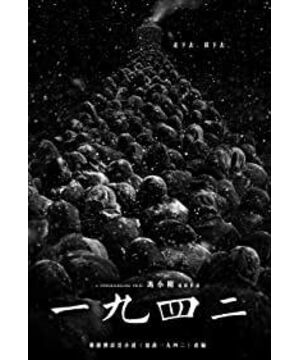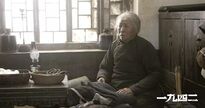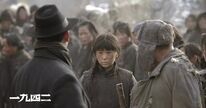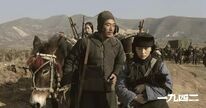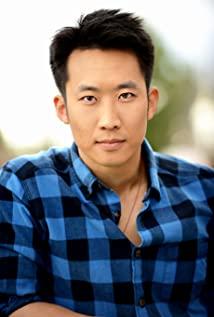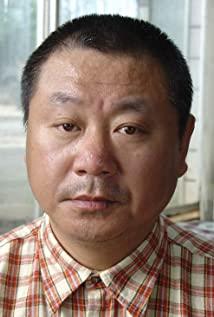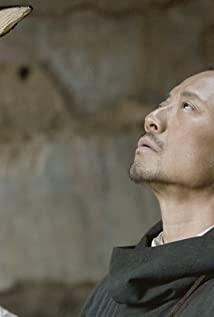Strongly recommend this film. I think this is Feng Xiaogang's best movie. It has no advertisements and no extravagance. It has a conscience and surpasses "Assembly".
1. When traveling in Xi'an, the tour guide talked about the Daobei people when talking about the security of Xi'an Railway Station. According to a tour guide, the whole area speaks Henan dialect, and when I was a child, it was "frightened" to mention the Daobei people. Later, I went to "lonely planet Shaanxi" to check and found out that the so-called "Daobei people" in Xi'an (that is, people from Henan living north of the Longhai line in Xi'an) are the Henan people who escaped from the famine from 1938 to 1944. Chief among them were the refugees caused by the severe drought in Henan in 1942-1943. During the period of the Republic of China, the urban area of Xi'an was actually only within the old city wall south of the Longhai Line, and the suburbs of Daobei were also occupied by the shanty towns of Henan refugees. Not only Xi'an, but also along the Longhai line to Baoji, a large number of Henan refugees gathered. At that time, there were only a few thousand residents in Baoji City, but there were millions of Henan refugees settled in the surrounding area. A great famine occurred in northern and southern Henan, but it changed the settlement pattern of cities hundreds of kilometers away, and it has affected so far. This is the biggest gain of my trip. After watching today's movie, I just want to understand why the old Shaanxi people have such an impression on Daobei people. Only people like that, after going through that journey, can get there. This is not the fault of the people of Daobei, nor the fault of the people of Henan.
Second, "1942" is the best story in Feng Xiaogang's films. I think this has something to do with Liu Zhenyun himself writing the script. I think Liu Zhenyun has become China's top movie screenwriter, and his achievements in this regard may exceed his novel writing. "1942" is not a very mature novel, it is just an emotional reportage. The statement in "Review of the Old Nineteen Forty-two" about the common people in Henan helping the Japanese army to fight the national army also makes this work unable to escape the accusation of "traitor literature". However, the movie "1942" has surpassed "Revisiting the Old One Nineteen Fourty Two" in an all-round way. The four character lines of the old club-Xiaolu, Chiang Kai-shek-Li Peiji, Bai Xiude, Anximan-Father Megan are intertwined, closely intertwined, and the narrative is smooth. And there are no logical loopholes. In terms of rhythm control, there are no urine spots in the whole film, sensational but not hypocritical, powerful but not contrived. In the film, the scene of the brutal killing of Shuan Zhu by Japanese officers better handles the topic of "Henan ordinary people help the Japanese army to fight the national army", and to a certain extent changes the "counter-revolutionary" tone of the original work, which shows that 2012 The Liu Zhenyun of 1992 is more mature than Liu Zhenyun of 1992.
3. Of course, the visual and sound effects of this film cannot be compared with "Youth π", but it has created the atmosphere of a disaster film very well. If you say which domestic disaster film is the best, I think it should be this one. Absolutely heart-wrenching and sometimes disgusting. Therefore, it is not recommended to watch movies with snacks. Comrades with cardiovascular and cerebrovascular diseases must pay attention to movie watching safety.
4. Missionary An Ximan had a conversation with Father Megan - An: "Does the Lord know what happened here?" Mei: "The Lord knows." An: "Why does the Lord do this, the people here are kind People, why should they be tortured by war and famine?" Mei: "This is not the will of God, it must be the curse of the devil." Ann: "If God can't fight the devil, what's the use of us believing in him?" Here I really want to cry unbridled, but seeing that there are girls sitting left and right, I have to turn off the sound and change it to vibration mode. Yes, in such a miserable land, what is the use of having faith.
5. I saw a post on Renren, which probably meant that "1942" was wrong. The main person responsible for the famine in Henan should not be Lao Jiang, but the Japanese. The famine was caused by the Japanese occupation of North China, which made it impossible for the people of Henan to flee north. In 1944, it was not the ordinary people of Henan who helped the Japanese army to fight the national army, but the traitor and puppet army under the command of the Japanese army to fight the national army. I would like to ask, who should be responsible for the Japanese who occupied North China in less than two years since "July 7", and the Japanese army occupied Henan Province in only 38 days in April 1944? Can the Chinese who participated in the puppet army still be regarded as ordinary people? Amartya Sen, winner of the 1998 Nobel Prize in Economics, once pointed out, "Poverty is not simply a lack of supply, but more of an uneven distribution of rights, that is, the deprivation of people's rights." I would like to cite Take a further example. In the seventh year of Daye at the end of the Sui Dynasty, "in autumn, in Dashui, Shandong and Henan drifted into more than 30 counties, and the people were sold as slaves and maids ("Sui Shu·Yangdi Ji")", and it had reached the point of cannibalism. However, even with the famine, the governments at all levels in the Sui Dynasty did not release the state reserves, did not use the warehouses, and did not even mention the squatters. They still demanded hundreds of thousands of people from Henan and Huainan to deliver grain to Luokou warehouse and Liyang warehouse for further transshipment. to Zhuozhou. Is it because the finances of the Sui Dynasty were too tight and difficult? In the thirteenth year of the great cause, after Wagang Army occupied Luokou warehouse, "open Luokou warehouse to disperse rice...you can take as much as you want; or after leaving the warehouse, if you can't make it, you will abandon Qu Road and go from Cangcheng to Guomen. It is several inches thick, and it is trampled by chariots and horses; the thieves come to eat and eat nearly one million people and their families, without urns, weaving thorn baskets to wash rice, ten miles between the two sides of Luoshui, all look like white sand. ("Zizhi "Tong Jian")" Li Mi happily said: "This is enough food!" It turned out that in the eyes of Emperor Yang of Sui, so much grain was not a reserve for disaster relief at all, but just his national wealth, and he should keep a little more. , still waiting to play Goguryeo! "Everywhere you look is like white sand", these six words still look shocking after more than a thousand years. As the saying goes, "waste is a great crime", but without the great crime of the government, how could the Wagang Army be so wasteful? If you do the first grade, don't blame others for doing the 15th. Come out and mix, sooner or later you have to pay it back.
6. There was a generation of Henan people who suffered very hard. They experienced the Huayuankou dike burst in 1938, the severe drought in 1942-1943, the famine in 1959-1961, and the dam failure of Banqiao Reservoir in 1975. With such a painful history, it is no wonder that there are all kinds of Henan people in the legend. Again, that's not the fault of the Henan people. Therefore, I have always believed that those who follow the news of major websites and scold Henan people are not netizens of the United States and Japan, or the grandsons who have eaten the conscience of dogs. In fact, it is not just Henan. Looking at the whole of China, three hundred and sixty days, when will there be no national shame, 10,000 miles across, where will there be no national disaster? Each of us is a descendant of survivors.
7. Speaking of this, I suddenly remembered a paragraph of Taizong's words in "Zhenguan Zhengguang": "In the Sui Dynasty, internal and external officials followed and violated their policies, which led to disasters. Many people couldn't think deeply about this principle. Face from backsliding, do not think it is a problem. Later, when the chaos comes together, the family and the country are lost, even if there are people who escape, even if they are not tortured, they are all hardships. This passage basically says that the unspoken rules of an official should not go too far, otherwise corruption will cause chaos in the world, and no one will be able to escape. Gu Yanwu said in the "Rizhilu": "There is a subjugation of the country, there is the subjugation of the world, and the subjugation of the country and the subjugation of the world are different? Said, changing the surname and changing the name is called the subjugation of the country. The benevolence and righteousness are full, and as for the beasts that eat people, people will eat each other. It is called the destruction of the world.... This is why you know how to protect the world, and then you know how to protect your country. Those who protect the country are the rulers and their ministers, and those who eat meat seek it. The people who protect the world are humble and responsible. (Volume 10) 3. Zhengshi)" To protect the world, not only the officials have the responsibility, but the common people also have the responsibility. But whether it was at the end of the Sui Dynasty, Yongjia, or 1942, they all reached the point of "leading beasts to eat people, and people will eat each other". The people couldn't even drink a mouthful of millet porridge, so what did they use to "protect the world"? Old Jiang, who was always thinking about "international events", was defeated in the Battle of North Henan and was excluded from the Tehran Conference; the quartermaster, who did not dare to greedy too much, was eventually convicted and shot. A grain of grain; the old owner is also a big family on the rich side. The whole family escaped from the disaster. From Yanjin County to the west of Tongguan, the dead were sold and sold, and only the old owner was left to turn eastward, only to beg for death. It's close to home; these are not diaosi. Is it because everyone suffers a lot, but it's just cheaper for the Japanese? In the last shot of the movie, the old boss took Ni's hand, turned her back to Tongguan, and faced east, with Zhongtiao Mountain in her left hand and Huashan Mountain in her right hand, and set foot on the way home. Mountains and rivers, both inside and outside of Tongguan Road, make people suffer, and people suffer.
8. This film should be of the kind that the Central Propaganda Department likes very much, and it is a high-profile counterattack against the "national fans". In addition to Shanghai Beach, which has a lot of money, and Peking University and Tsinghua University, which has NB students, there are so many people in old China who escaped and lost their lives because of the hard work of eating. For them, the democracy that Cao Kun spent five thousand oceans and the "Republic of China model" of Lu Xiaoman and Lin Huiyin had nothing to do with them. No matter how good the Republic of China is, it will never be better than it is now. Whenever I talked to my grandfather about the benefits of the Republic of China, he always asked, "Have you ever lived in the old society?" Before the road exhibition, he said "continue to move forward bravely towards the goal of the great rejuvenation of the Chinese nation". In this regard, I thank Chairman Mao and the Communist Party.
9. As for someone who said why not shoot 1959? I advise these people not to go to the movies and go straight to the originals. If you don't know who Liu Zhenyun was scolding in 1992 after reading the original work, I suggest that these people should go back to junior high school and ask their language teacher what it means to scolding sang and scolding Huai. "1942", as a public movie to sell at the box office, he cannot afford a figure like 1959.
PS: I think the theme song of this movie is pretty good.
View more about Back to 1942 reviews


